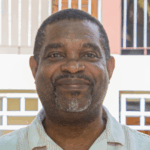
Ghanaian students in the United Kingdom studying under the Government of Ghana scholarship scheme have issued an urgent plea to the country’s newly appointed High Commissioner, raising alarm over what they describe as severe financial and academic hardship caused by prolonged non-payment of tuition fees and stipends.
In a statement issued, signed by the Executives of the UK PhD cohort, congratulating the 19th High Commissioner — and the first woman to assume the post — the PhD cohort laid out the scale of the challenges now threatening their studies, accommodation, and immigration status.
According to the group, approximately 110 PhD candidates are currently sponsored by the Ghana Scholarship Secretariat (GSS), a figure that excludes those on master’s and undergraduate programmes. One member of the cohort was recently lost after a prolonged illness, a loss the students say underscores the strain many are now under.
The students report that delays in tuition and stipend payments range from four months to an extraordinary 48 months. As a result, numerous scholars remain unable to re-enrol, submit academic work, or graduate. Some who managed to attend graduation ceremonies have yet to receive their certificates because outstanding fees have not been settled by the Ghanaian government.
While acknowledging attempts by the current management of the GSS and the Ghanaian government to address parts of the debt, the students describe these efforts as “woefully inadequate”. Data collected from 86 members shows that around 30 students have received no payment at all towards their 2024–25 tuition fees. Partial payments made on behalf of others have not been sufficient for universities to reopen their portals or confirm their registration.
For the 2025–26 academic year, the cohort estimates that approximately £400,000 will be required to keep students enrolled. Already, around 10 scholars have been withdrawn or suspended due to unpaid fees and are anticipating potential deportation notices from the Home Office.
Beyond academic risks, many students face severe practical and personal hardship. Several have been evicted from their accommodation, while others face legal action over months of unpaid rent. Those needing to travel to Ghana for data collection have been unable to do so, either due to lack of funds or fear that leaving the UK could jeopardise their re-entry. Some who did travel have already been refused entry because of outstanding tuition debts marked on their profiles or previous Home Office warnings.
The situation is especially critical for PhD students, who maintain that the continuous nature of their research makes it “practically impossible” to undertake paid employment to supplement their income.
Compounding these difficulties is the absence of scholarship renewal letters and progression reviews from the GSS for nearly 10 months, documents essential for academic registration and visa compliance. Thirty-six members are urgently awaiting these letters. A further 10 are waiting on Letters of No Objection (LONO), which would allow them to undertake two years of industry experience — a non-settlement route that, the students emphasise, does not lead to permanent residency, contrary to some media reports.
Despite repeated attempts to engage the GSS, the cohort says assurances have been limited and largely non-committal. Meanwhile, stipends averaging between £1,023 and £1,200 per month remain unpaid for many, with some students having received nothing for up to four years.
The group welcomed ongoing government efforts to reform the scholarship system for greater transparency and fairness, but stressed that affected students come from diverse backgrounds, including many with no political affiliations.
They are now appealing directly to the High Commissioner and to President John Dramani Mahama to intervene urgently and provide immediate redress, noting that the government has already addressed other inherited liabilities.
“We hope and believe that we shall receive positive feedback,” the students wrote, “knowing that these matters are in their hearts.”


